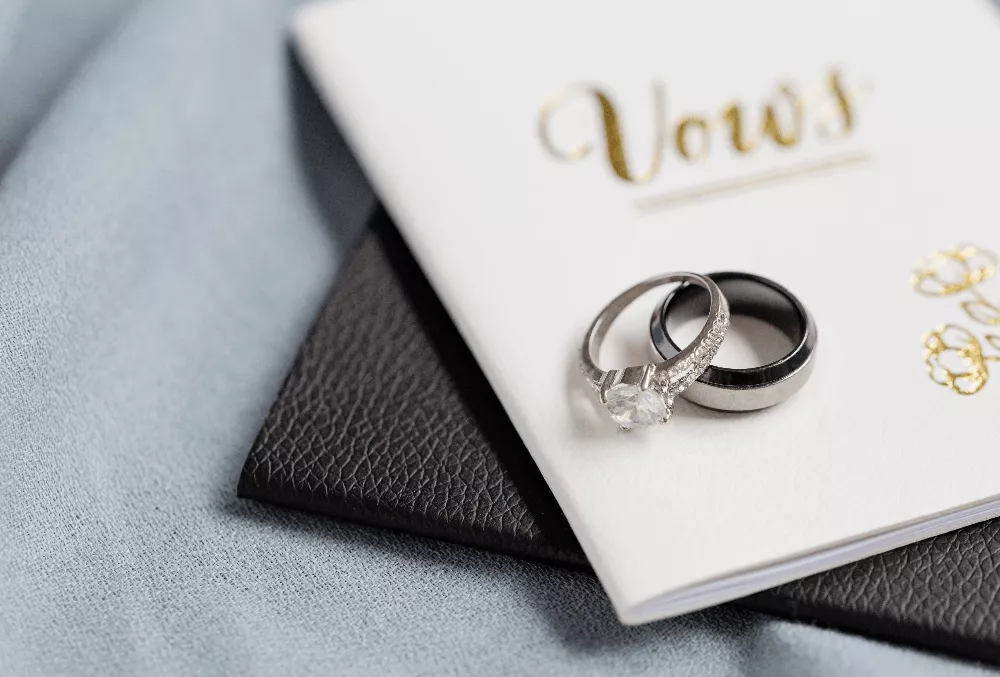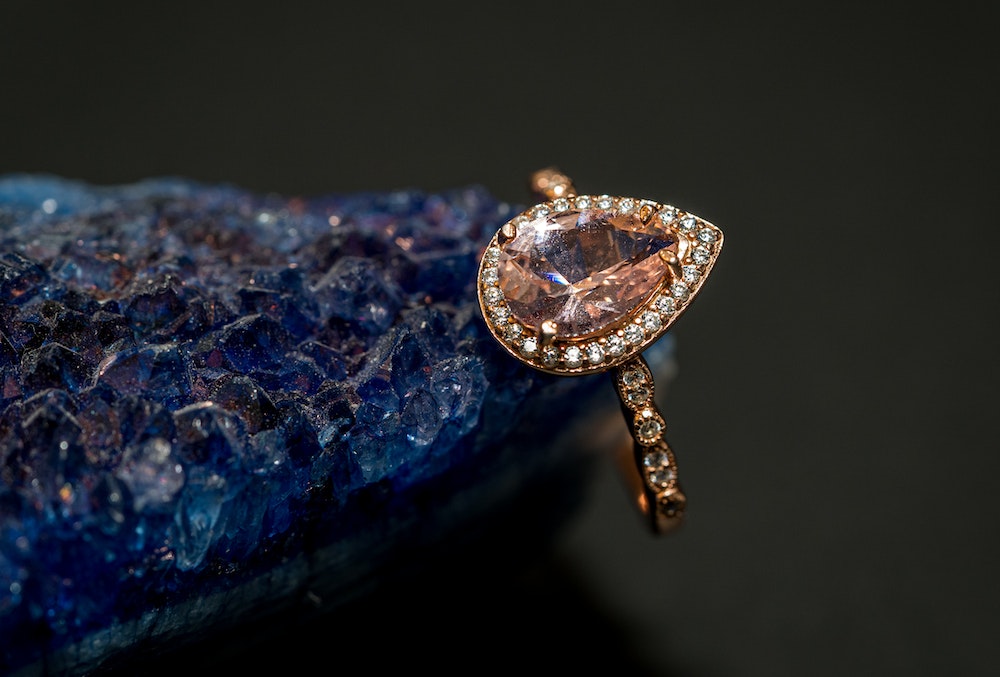We know that the engagement ring should be purchased by the individual making the proposal, but who buys the wedding bands? Traditionally each person pays for the other’s wedding bands. However, with the change of times customs too have evolved over time leading to some nuances.
The bride (and her family) buys the groom’s engagement band, while the fiancé (and his family) buys the bride’s wedding band. Even though this was the traditional method twenty or thirty years ago, traditions have evolved to represent the new viewpoint on marriage, and contemporary partners now have a wide range of choices available to them.
What does the tradition say?
Although wrist ornaments (rings) have been worn for thousands of years, only women could wear engagement bands in the Middle Ages. Between 1300 to 1400, religious rituals, which were frequently funded by the bride’s family, saw a rise in the use of wedding bands, which are different from engagement rings.
The use of wedding bands as a sign of love in men’s eyes and a stylish way to encourage faithfulness in a relationship was later revised by the various religions, though this practice did not become more widespread in the West until after 1940. Since then, men have started to wear wedding rings almost exclusively (thanks to marketing efforts) as a mean to recall their spouses in the past. A gesture they adopted from World War II troops.
Who buys the wedding rings?
To understand better the topic, its good to break it further;
Who buys the wedding band for the man?
Traditionally, the lady (and her family) are responsible for buying the groom’s wedding ring. However, that has been the case since around 1940s, its around that period that American men began wearing wedding bands
Who buys the wedding band for the bride?
Traditionally its the man who buys the bride’s wedding band. The man may accept financial help from his parents, however, that doesn’t shift the responsibility from him. The practice dates back to ancient Egypt.
Who typically buys the wedding bands currently?
Nowadays, a lot of couples choose to split the expense of their wedding rings because they see them as a sign of their union. Another possibility is a bride who decides she can afford both wedding rings in order to offset the cost of the engagement ring, which is typically much more expensive.
The rules are not really stated since it is common for the guys or a close cousin of the couple to decide to pay for the wedding bands as a wedding gift.
Who picks out the wedding bands?
The solution for this topic, like every other choice you will likely make regarding your wedding, depends on your personal preferences. Wedding bands used to come in a much smaller variety of design and style choices than they do now.
For the bride, there are several ways to select a wedding band that will go with an engagement ring. Some select a band that closely matches their ring, while others choose a band that they can wear separately from their engagement ring. Then, the groom’s band can be a distinct, very style and usually that matches the bride’s wedding band.
Most couples nowadays go to their jeweler together to select wedding bands, with each individual eventually having the final say in their ring. They serve as a symbol of what each person wishes to wear as a representation of their own style.
What should you consider before buying a wedding band?
1. Lifestyle
A question many people find themselves asking is whether they want something with raw diamonds, or something simpler. You should think about your living and job field. If you’re very buys, do manual job or move a lot you may want a low maintenance band so you don’t have to worry about losing it. And remember, something simple can always be classic and valuable.
2. Metal type
There are many metal choices to choose from, with rose gold, yellow gold, white gold and platinum being the most common. If couple wants their bands to appear like they go together, choosing the same metal is a simple way to achieve that. If not, either person may select the metal they prefer.
3. Ring size
Understanding your ring size now will help you avoid a lot of future problems. Typically, eternity rings or bands with an all-around pattern can’t be resized. Any designs should be reviewed with a qualified jeweler to ensure that they are secure in the event that a resizing is required.
Conclusion
As you can see there is no correct or right answer when it comes to who buys the wedding bands. But selecting items that respect your marriage while reflecting your special and unique connection is a guaranteed way to discover something you adore.
FAQ (Frequently Asked Questions)
Who buys the wedding bands, man or woman?
Usually, the bride’s wedding band is purchased by the groom, and the pair exchanges rings during the wedding ceremony. The man purchases the wedding ring previously to the proposal.
Do you buy wedding bands together?
Yes! Even if you only “window shop” you will learn about your partner’s preferences and the kind of spending budget they’re having.
Who buys the engagement ring?
According to tradition, each individual is responsible for purchasing the other’s ring. So, the bride’s ring should be purchased by the groom, and vice versa.
Is it bad luck to buy your own wedding ring?
There’s an old belief that choosing your own wedding ring brings bad luck. But, nowadays women would rather select their own wedding ring than leave it up to chance and let their fiancé make the decision, because it is a significant piece of jewelry.


